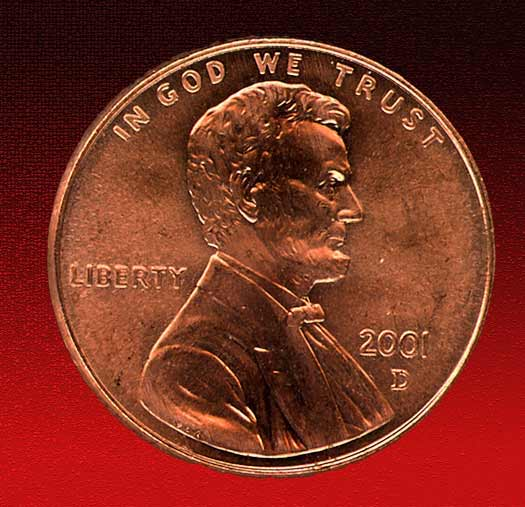


The
question of the penny drop is nothing new, but there is
a lot more to it than the couple of simple calculations that were
discussed in
this report. And in fact it is practically impossible to calculate the
exact
terminal velocity of a penny.
According to University of Virginia physics professor, Louis Bloomfield, in an article conducted by ABC news: a penny "will hit full speed after 50 feet or so, and it just coasts."(4). And there are several reports/calculations that calculate or experiment with terminal velocity as it relates to either pennies or other objects. Some of these reports are listed below. However, there are more considerations to consider.
In the May 2009 issue of New Scientist Magazine, there is an article entitled: " 'Super-terminal' raindrops break speed limit ", suggesting that there is perhaps more to this issue than scientists thought initially. The article discusses how some rain drops actually travel 10 times faster than what they should be traveling for their size. One suggestion in the article is that the raindrops may be braking up from larger drops, and while this is a possibility, this still points out the fact that the issue is not just a simple calculation (14).
According to University of Virginia physics professor, Louis Bloomfield, in an article conducted by ABC news: a penny "will hit full speed after 50 feet or so, and it just coasts."(4). And there are several reports/calculations that calculate or experiment with terminal velocity as it relates to either pennies or other objects. Some of these reports are listed below. However, there are more considerations to consider.
In the May 2009 issue of New Scientist Magazine, there is an article entitled: " 'Super-terminal' raindrops break speed limit ", suggesting that there is perhaps more to this issue than scientists thought initially. The article discusses how some rain drops actually travel 10 times faster than what they should be traveling for their size. One suggestion in the article is that the raindrops may be braking up from larger drops, and while this is a possibility, this still points out the fact that the issue is not just a simple calculation (14).
A penny can fall on straight down (heads or tails
perpendicular with the
ground), flat (heads or tails facing the ground), or spin as it falls.
Depending on how it falls, the velocity will change slightly because
velocity
and drag are dependent upon the cross sectional area. The penny falling
flat
will have more drag than the penny falling straight down. A penny that
is
spinning will have a changing cross sectional area further complicating
the
issue.

In fact, according to the Monday-morning-armchair-physicist
website, the
coefficient for drag ranges from .36 to 2 for a penny. This website
also points
out the fact that the density of air varies with temperature, altitude,
and
humidity (5).